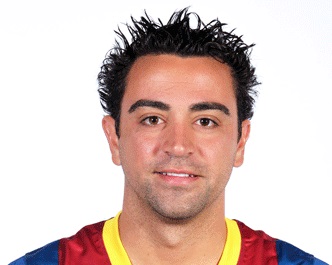Xavi Hernández, often simply known as Xavi, is a name that resonates deeply within the footballing world. Born on January 25, 1980, in Terrassa, Catalonia, Spain, Xavi rose from humble beginnings to become one of the most influential and revered figures in the history of the sport. In this comprehensive essay, we will explore Xavi’s remarkable journey, tracing his rise to prominence, examining his illustrious playing career, his coaching endeavors, and analyzing the profound impact he has had on the game of football and beyond.
Early Life and Beginnings:
Xavi Hernández Creus was born and raised in Terrassa, a city located in the province of Barcelona, Catalonia. From a young age, Xavi displayed an innate passion and talent for football. He honed his skills playing on the streets and in local youth teams, catching the attention of scouts with his exceptional technique, vision, and understanding of the game.
At the age of 11, Xavi joined the famed La Masia youth academy, the renowned youth system of FC Barcelona known for producing some of the world’s greatest footballing talents. It was at La Masia where Xavi’s footballing education truly began, as he immersed himself in the club’s philosophy of possession-based football, also known as tiki-taka.
Rise to Prominence at FC Barcelona:
Xavi’s talent and dedication quickly saw him rise through the ranks of Barcelona’s youth system. He made his first-team debut for Barcelona in 1998 at the age of 18, under the guidance of then-manager Louis van Gaal. From the outset, it was clear that Xavi possessed a unique set of skills that set him apart from his peers.
As a central midfielder, Xavi was the epitome of the Barcelona style of play, characterized by quick passing, fluid movement, and positional intelligence. He possessed an exceptional ability to dictate the tempo of a match, orchestrating play from deep midfield and effortlessly transitioning defense into attack.
Success with FC Barcelona:
Over the course of his illustrious career at Barcelona, Xavi played a pivotal role in the club’s unprecedented success both domestically and internationally. He formed a formidable midfield partnership with fellow La Masia graduate Andrés Iniesta, as the duo became the heartbeat of Barcelona’s midfield for over a decade.
During his time at Barcelona, Xavi won numerous domestic and European titles, including eight La Liga titles, four UEFA Champions League titles, and various domestic cup competitions. His influence on the pitch was immeasurable, as he played a key role in Barcelona’s historic treble-winning season in 2008-2009 under the guidance of manager Pep Guardiola.
International Success with Spain:
In addition to his success at the club level, Xavi enjoyed considerable success representing the Spanish national team. He made his international debut for Spain in 2000 and went on to become one of the most capped players in the history of the national team.
Xavi played a central role in Spain’s golden era of football, which saw the national team achieve unprecedented success on the international stage. He was instrumental in Spain’s triumphs at the UEFA European Championship in 2008 and 2012, as well as their historic victory at the 2010 FIFA World Cup in South Africa.
At the heart of Spain’s midfield, Xavi epitomized the team’s possession-based style of play, dictating the tempo of matches and orchestrating play with his exceptional passing and vision. He was widely regarded as one of the finest midfielders of his generation and played an integral role in Spain’s dominance of international football during the late 2000s and early 2010s.
Style of Play and Influence:
Xavi’s playing style was characterized by his exceptional technical ability, intelligence, and tactical awareness. As a central midfielder, he excelled in controlling the rhythm of the game, dictating play with his precise passing and vision. Xavi’s ability to retain possession under pressure and find incisive passes in tight spaces made him a unique and invaluable asset for both club and country.
One of Xavi’s defining qualities was his understanding of space and timing. He possessed an uncanny ability to find pockets of space on the pitch, allowing him to receive the ball and dictate play with ease. His quick decision-making and ability to anticipate the movements of his teammates and opponents made him a masterful orchestrator of the game.
Xavi’s influence extended far beyond his performances on the pitch. He was widely respected for his leadership qualities, humility, and professionalism, serving as a role model for aspiring football


